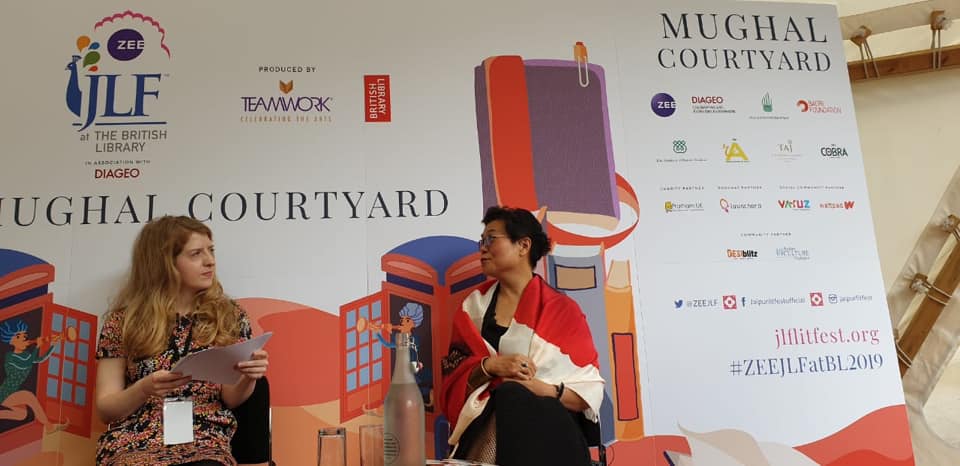


Words Are All We Have Anjali Joseph, Lijia Zhang, Romesh Gunesekera, chaired by Catharine Morris Paula Van Hagen, Official ZEE JLF at The British Library Blogger
For writers moving between countries and continents, a change of home may also mean a change in language. China-born writer and journalist, Lijia Zhang, whose books include China Remembers, Socialism is Great! and Lotus finds a shift into English, freeing her both in terms of sentence construction and from the restrictions of political censorship.
Acclaimed Sri-Lankan born British author and finalist for the Man Booker Prize, Gunesekera views writing in English as sending “news from another country,†even if you never leave the street where you were born.
Reading an excerpt from his cricketing novel,The March Gunesekera’s protagonist is a Sri-Lankan living in Manila whose ability to speak Americanisms without flinching is a key to his integration into teenage society. Sport – like language – become a way for Gunesekere’s characters to define their identity: a sense of rootlessness tethered by shared support for a (preferably failing) cricket team.
Joseph, whose three novels include The Living, chose to read an excerpt that crossed backgrounds and continents, exploring the beauty of the everyday for a family of sandal makers. As a writer, she freely admits that plot is less important to her than an evocation of place and the expression of a unique voice. Discussing her exploration of realism as an art form, she admitted - “stuff is interesting†because it is the legacy of decisions we have made; the detritus of our lives which we have chosen to accompany us as we travel.
Zhang has written her novel, Lotus in English but each chapter is headed with a Chinese saying and reflects the richness of ‘my mother’s language’. The novel draws on Zhang’s life interwoven with that of her grandmother’s. She discovered late in life to her shock and surprise, that her venerated grandmother had been a prostitute and her grandfather’s concubine before becoming his wife. Lotus draws on the facts of Zhang’s personal history to describe a fictionalised account of a favourite trope - the struggle of little people at the bottom of society.
In writing for an international audience, Zhang never assumes knowledge of Chinese history: for a Chinese audience, that knowledge is taken for granted. At some level she always sees herself as a bridge between the two. How much to spell out is a constant question of balance. Joseph just imagines a single-reader. Gunesekera, writing in English, started off by imagining a readership comprised of his mother and a reader in an old fashioned library. Since writing The Reef, he has discovered to his delight that what he felt was a private language – including linguistic jokes – was always appreciated and enjoyed by others



Leave a comment